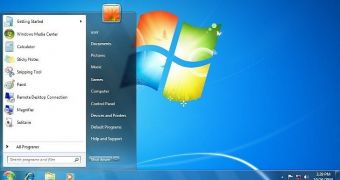Microsoft recently pulled the plug on Windows XP, leaving millions of users still running this particular OS version vulnerable to attacks in case someone finds an unpatched flaw before they upgrade.
Without security patches and fixes, users whose computers are still powered by Windows XP have basically no other option than to hope that no critical security glitch exists in the operating system and, in case it does, cybercriminals won't launch any attack against their machines.
But, even though Redmond issued upgrade warnings with almost every single occasion, Windows XP continues to be the second most used operating system across the world on the desktop and some users don't really seem to be planning to switch to another OS version anytime soon.
Microsoft is, of course, still recommending users to upgrade, hoping that, at some point in the coming years, Windows XP will go dark for good and everyone will be running newer and more secure platforms.
Unfortunately for Microsoft, the Windows XP end of support seems to be more of a training session for a bigger nightmare that's scheduled to take place in 2020.
Windows 7, which is currently the world's number one operating system with a market share of more than 50 percent (which means that 1 in 2 PCs are running it), will reach its own end of support on January 14, 2020. As of that moment, Windows 7 will no longer receive updates and security patches, becoming just a product to avoid, as it's the case of Windows XP right now.
The problem is that Windows 7 is growing at such a fast pace these days that it's very likely to become the new Windows XP in 2020 when it's supposed to be killed.
Basically, Windows 7's market share is increasing every single month, even though Microsoft has launched not only a completely new operating system – Windows 8 –, but also two big updates – Windows 8.1 and Windows 8.1 Update. What's worse, Windows 7 is the preferred destination not only for Windows XP users who are deciding to upgrade, but also for some of those who install Windows 8 and are not pleased with the modern operating system, thus going back to its predecessor.
There's no doubt that Windows 7's end of support is going to be another critical moment for everyone. On the one side, there's Microsoft, which hopes to see users quickly migrating to newer operating systems, and on the other, users, who will once again have to pick another platform to upgrade to.
The only thing that could make the mission of killing Windows 7 easier is the launch of a really powerful operating system that would have so many great features and an appealing look that could convince users to upgrade on their own, without waiting for end of support. Sure, organizations running Windows 7 would still stay on this OS version until end of support, but at least Microsoft would manage to reduce the user base and prepare for this critical moment.
Windows 9 and its successor (maybe Windows 10 if Microsoft decides to stick to the same naming scheme) would thus play a key role in this mission of getting users to newer operating systems. Of course, Microsoft needs to do everything right and, if it really listens to customer feedback, it might actually manage to come up with a truly powerful product that would appeal to many more consumers than Windows 8 did.
We already know what customers want, but there's no doubt that all these trends are very likely to change in six years. Now, many want a Start menu in Windows, Aero effects, a more appealing look, more customization options, and better security, but all these requests could easily change depending on the features introduced in new products not only belonging to Microsoft, but also to the other tech companies on the market.
Windows 7 was such a good product that everyone loved it from the very beginning. What's more, it came just after the Windows Vista disaster and packed exactly the features that users wanted at that time, including that Start menu that everyone is talking about today, a clean and easy to use interface, plus a very reliable and secure experience.
By the time Windows 9 comes out, there's no doubt that Windows 7's market share is going to grow bigger, so it's all up to the next full Windows version to convince users to upgrade.
There's one big dilemma though: if Windows 7 was such a great operating system with everything that users ever wanted and it still failed to get users off Windows XP, does Windows 9 have a chance to do this in less than six years?

 14 DAY TRIAL //
14 DAY TRIAL //